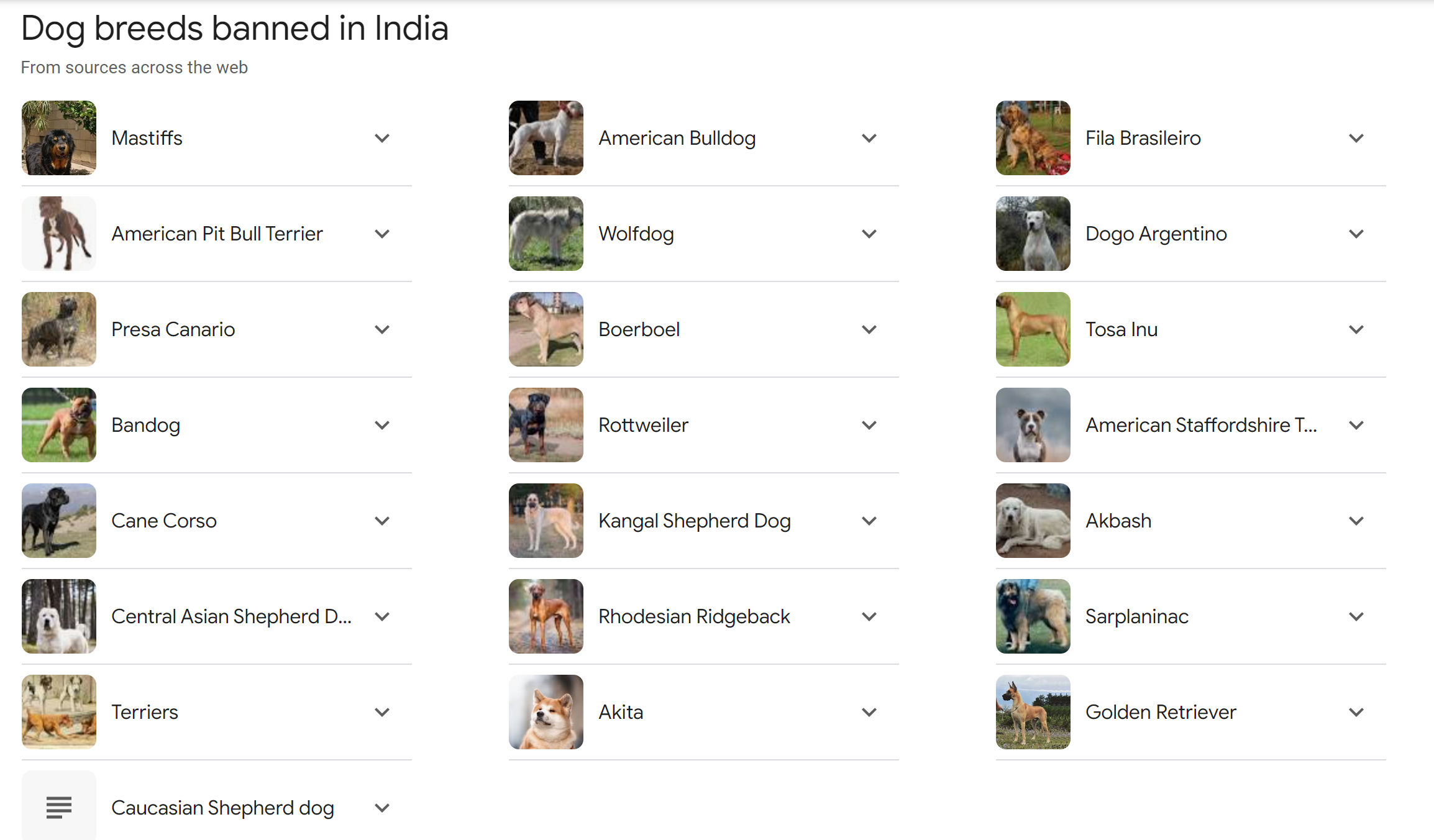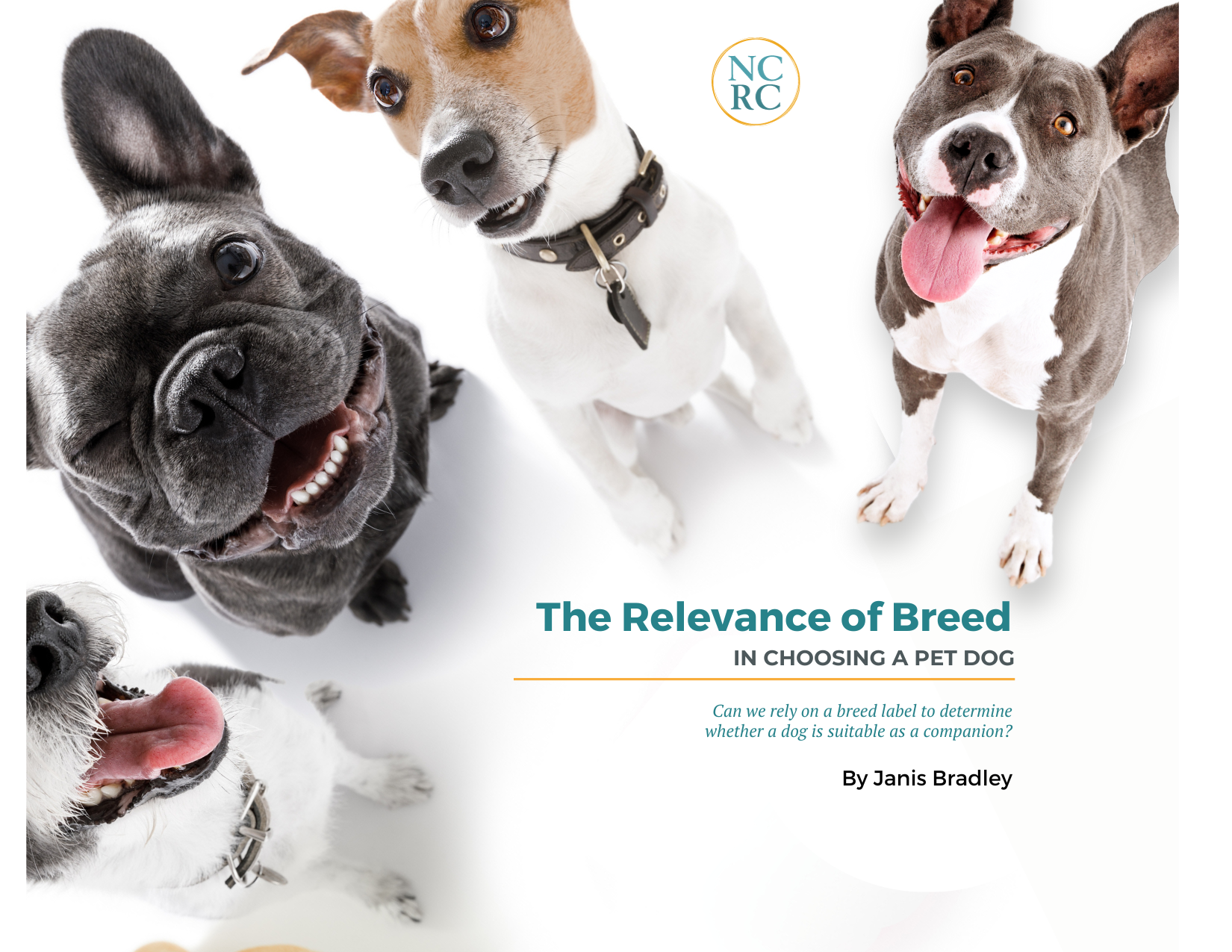Thankfully, banning dogs of certain breeds is increasingly rare. But when this choice is made, as with the recent national BSL legislation in India, we are reminded of some of the reasons that it simply cannot help prevent dog bite injuries:
- Behavioral genetic science shows conclusively that a dog’s breed simply cannot predict anything about whether they are likely to growl or snarl or snap at people, much less bite anyone hard enough to injure.
- It is not possible to visually identify with any accuracy the breed ancestry of a mixed-breed dog. This means that enforcement attempts unfairly target and victimize specific people and their pets based on stereotypes.
- BSL has never succeeded in reducing dog bite injuries anywhere it has been tried.

One of the "breeds" banned in the Indian law is "Terriers," which is not a breed but a huge breed group, that make up about quarter or more of all the the AKC breed populations.
In spite of all this, India’s central government has taken the unfortunate step of banning 23 breeds of dogs as pets (see list below). A much more productive approach is the one endorsed by every responsible animal behavior organization for decades: encouraging and helping pet owners to provide sound care and socialization for their animal companions.

For additional information about preventing breed-specific legislation head to: https://nationalcanineresearchcouncil.com/breedspecificlegislation/







